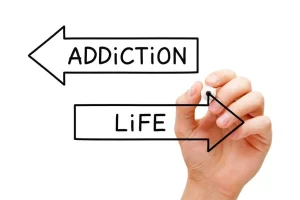Sober living
How to Rebuild Relationships in Recovery Addiction Treatment

When recovering from addiction, it’s essential to have people around who hold you accountable for your actions and decisions. A strong connection in recovery encourages individuals to stay on track and remain committed to their sobriety goals. Accountability partners can help each other through moments of temptation and provide motivation to continue pursuing a life free from drugs and alcohol.
Embrace Support Groups and Recovery Programs
These consistent efforts to make positive changes are key to regaining trust from loved ones. In addition to these challenges, addiction can also lead to financial issues in relationships. A person with an addiction may spend money on substances, causing financial strain. Seeking financial counseling can be beneficial to overcome such challenges [4].

Healthy Relationships
One of the most valuable aspects of connection in recovery is the opportunity to learn from others’ experiences. Connecting with individuals who have faced similar struggles allows you to gain insight into the challenges and successes they have encountered along their journey. Their stories can https://ecosoberhouse.com/ provide guidance, inspiration, and hope, showing you that recovery is possible. You may be concerned about how others will react or judge you when you share your recovery status. Occasionally, such questions may be asked provocatively, questioning or even testing your commitment to recovery.
Prioritize Open Communication
Self-doubt can be a significant obstacle when trying to convince others to trust again. Recognizing personal achievements and growth, keeping promises made to oneself, and practicing healthy routines are key components in this process. Other signs of toxicity can include controlling behaviors, such as constant monitoring of your whereabouts or repeated messaging until you respond. In some instances, the codependent may begin to drink or abuse to enable their partner’s habit. Codependents may suffer underlying conditions like depression or anxiety, losing their identity in their partner’s life. With hard work, patience, and love (for yourself and others), reconnecting with the people you care about most and building new, stronger relationships is totally possible.
We will have to develop a richer definition of self-esteem than how we feel about ourselves. Perhaps a broader concept would be to look at the value we place on ourselves emotionally, spiritually, and physically. When starting relationships in the early stages of recovery, it’s important to be open and honest about your recovery journey. Understand that healing takes time and that your loved ones may need space to process their feelings and decide how they want to move forward. Respect their need for time and space, and don’t pressure them for forgiveness or reconciliation.
- During times of active substance abuse, there are usually fewer positive interactions with loved ones.
- When you do spend time with them, ask about how they have been doing and listen.
- Frequently, wanting to “fix” important relationships immediately is based on a desire to alleviate the emotional pain of having hurt loved ones.
- And, we have professional relationships with colleagues and co-workers.
Good communication can deepen connections and help you build a strong support network. As much as you need to express your remorse and commitment to change, it’s equally important to listen to how your addiction created toxic relationships. Validating their feelings by acknowledging their pain and showing relationships in recovery empathy can help rebuild the emotional connection that was damaged. Navigating relationships in recovery is a complex process that can present unique challenges for couples. These challenges can include rebuilding trust, overcoming communication difficulties, and managing differences in sobriety goals.
- Repairing relationships while in recovery requires hard work and commitment.
- We thrive most when we are surrounded by people who share our values, people with who we can find meaning in life.
- The first really positive action we can take is to become abstinent.
- One of the critical aspects of maintaining healthy relationships in recovery is recognizing and ending toxic relationships.
- There are different types of unhealthy relationships directly related to addiction, like codependent/enabling relationships.
- Here are some reasons that relationship recovery is a critical part of addiction recovery.
How repairing damage and building healthy connections improves recovery

One of the great things about addiction recovery is that our self-esteem can take a major boost. If you don’t want to meet face-to-face or call, try writing a letter or an email to initiate contact. If you receive a positive response, you may want to suggest meeting up to apologize and make amends. If not, give your loved one time to process the information and wait until they’re ready to connect with you. Repairing relationships while recovering from substance use disorder can be challenging.
The Significance of Healthy Relationships in Recovery
However, most of the time people ask questions because they genuinely wish to know more. They may want to know why you’ve chosen this particular path because they have questions about their own alcohol or other drug use or are concerned about a family member or friend. Although no one in recovery is immune to the possibility of relapse, those who are new(er) are especially vulnerable. Therefore, informing people to whom you are becoming close that you don’t drink alcohol or use other drugs—sooner rather than later—will help you avoid many risky situations.
Positive partnerships can thrive as the individual in recovery can develop healthy social circles, thus creating healthy connections. Healthy relationships can help individuals struggling with addiction to avoid negative attachments to people who bring out the worst in them. Engaging in toxic relationships can create feelings of frustration, unnecessary stress, and conflict.
